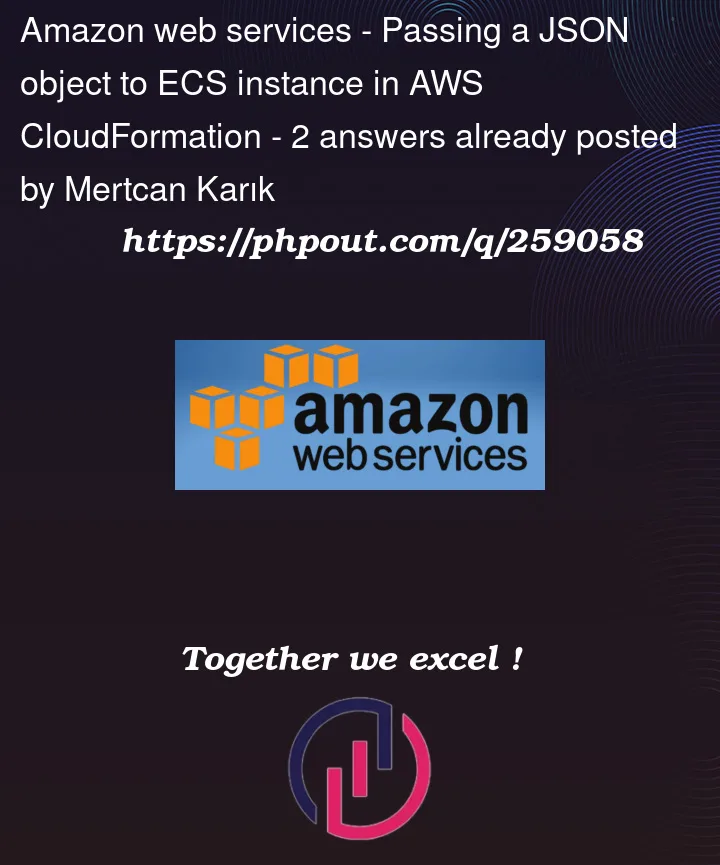I have a containerized app that I want to run on ECS and it requires a configuration file, a JSON object. I defined my ECS instance like the one below in the CloudFormation template.
"ECRInstance": {
"Type": "AWS::ECS::TaskDefinition",
"Properties": {
"NetworkMode": "awsvpc",
"Cpu": 256,
"Memory": 512,
"ExecutionRoleArn": {
"Ref": "ECSTaskRole"
},
"requiresCompatibilities": ["FARGATE"],
"ContainerDefinitions": [
{
"Name": "my_app",
"Image": "...",
"PortMappings": [
{"ContainerPort": 8080}
],
"LogConfiguration": {
"LogDriver": "awslogs",
"Options": {
"awslogs-group": {
"Ref": "CloudWatchLogsGroup"
},
"awslogs-region": {
"Ref": "AWS::Region"
},
"awslogs-stream-prefix": "my_app"
}
}
}
]
}
}
Is there a way that I can pass my configuration file to the ECS instance through the CloudFormation template and possibly add a section to my code to receive that configuration object? Something like the below:
// readCfg() reads the configuration object given in the CloudFormation template.
const configuration = readCfg();




2
Answers
You cannot pass a JSON directly via the CloudFormation template.
However, you can leverage the
commandproperty in your Task Definition to create a JSON file that you can then read in your Node.js code.Something like:
And then in your code:
If it’s not sensitive data, just pass it as a string in an environment variable. It’s exposed to NodeJS in
process.env.MY_VAR_NAME, all other languages can read environment too.If it’s sensitive data (passwords, access tokens and such like), create a secret in SecretsManager and populate this secret outside your template (so that it’s not getting exposed in your template code).
Then, inside your container’s code, read the secret: